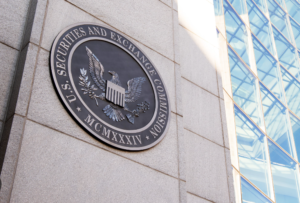$META $SONY $BTC
#UK #Inflation #ONS #Economy #VR #Meta #Sony #Retail #ConsumerSpending #Pork #Finance #Crypto
The Office for National Statistics (ONS) has updated the contents of the UK inflation basket to better reflect evolving consumer spending habits, adding virtual reality (VR) headsets and pulled pork among other items. The inflation basket is a crucial tool for measuring cost-of-living changes and overall price growth, shaping economic policies and financial forecasts. The inclusion of VR headsets highlights the growing prominence of immersive digital technology, driven by increasing adoption for both entertainment and professional use. Companies like Meta and Sony, with their leading products in the sector, are likely to benefit from increased consumer interest, while broader economic trends indicate a rising demand for digital experiences. At the same time, the addition of pulled pork suggests a shift in consumer food preferences, as more households favor convenience-driven and globally inspired cuisine.
Changes to the inflation basket reflect societal and economic transformations, offering insights into broader market trends. The inclusion of VR devices points to expanding investment in the metaverse and digital ecosystems, an area that has drawn significant capital from technology giants and investors alike. Meta, for instance, has been heavily investing in VR technology through its Quest headsets and Horizon platform, aiming to establish dominance in the sector. Meanwhile, Sony continues to strengthen its PlayStation VR lineup, enhancing gaming experiences and expanding its footprint in the market. The rising adoption of VR devices also influences related industries, including semiconductor manufacturing and cloud computing, creating potential investment opportunities. While inflation remains a concern in the UK, consumer spending patterns suggest a shift towards technology-driven convenience, reflecting longer-term structural changes in the economy.
The addition of pulled pork to the inflation basket signals more than just an evolving food trend—it underlines broader changes in the retail and hospitality sectors. With convenience foods gaining popularity, supermarkets and food producers are expanding their offerings to cater to shifting preferences. This trend also highlights the impact of supply chain dynamics and agricultural pricing amid ongoing inflationary pressures. Rising input costs, including feed and transportation expenses, have affected meat prices, and the inclusion of pulled pork in inflation calculations suggests that such factors remain relevant for assessing overall price growth. For investors, this underscores the importance of monitoring food inflation, which has been a persistent driver of cost-of-living increases. Changes in consumer demand for specific food products could also shape the stock performance of supermarket chains and food manufacturers operating in the UK market.
In a broader economic context, these updates reflect the UK’s ongoing struggle with inflation while shedding light on evolving consumer behavior. The Bank of England continues to assess inflation trends when making monetary policy decisions, with interest rates remaining a key tool in managing price stability. The rise of digital technology, including VR, alongside shifts in food consumption habits, points to significant economic transformations that could shape future policy responses. As investors watch inflationary developments closely, the latest basket adjustments provide valuable insights into sectors experiencing sustained growth and changing demand dynamics. With technology and consumer goods evolving rapidly, businesses and investors alike must stay attuned to these trends to navigate an increasingly complex economic landscape.











Comments are closed.